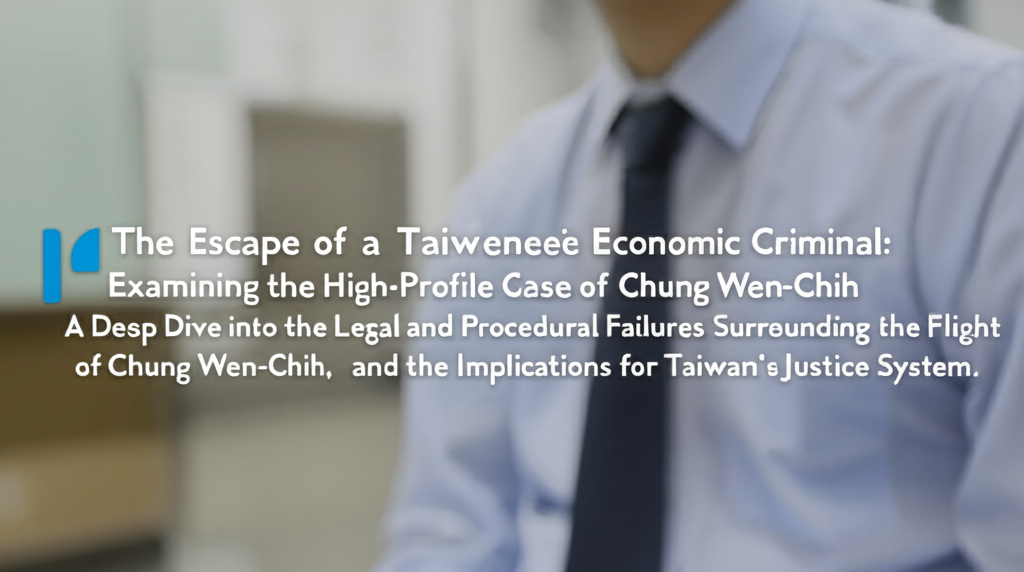The Escape of a Taiwanese Economic Criminal: Examining the High-Profile Case of Chung Wen-Chih
A Deep Dive into the Legal and Procedural Failures Surrounding the Flight of Chung Wen-Chih, and the Implications for Taiwan's Justice System.

The case of Chung Wen-Chih, former head of Lianyi Abalone, has caused a stir in Taiwan. Convicted of stock manipulation and illicitly profiting from Depositary Receipts (TDRs) to the tune of NT$470 million, and sentenced to a cumulative 30 years and 5 months in prison, Chung Wen-Chih has vanished after forfeiting a NT$100 million bail.
This dramatic escape has highlighted potential shortcomings within the legal system. The Taiwan High Court's failure to extend technological surveillance and its reliance on "hearing notices" instead of formal rulings, preventing prosecutors from appealing, has sparked controversy. The High Court initiated a self-discipline committee investigation today to address these concerns.
The second trial in Chung Wen-Chih's case concluded in May 2023, with the Supreme Court affirming the verdict only recently on December 12th. Following the final judgment, news of Chung Wen-Chih's disappearance surfaced. His legal team in the third trial comprised Wang Kuo-tung, Chen Hsien-yu, and Hong Chang-hung. Wang is a retired High Court judge turned lawyer. Hong also has experience as a Supreme Court judge. Chen Hsien-yu, who also served as a member of the Judicial Reform Conference, is a noteworthy attorney. Notably, Chen also represented Chu Kuo-jung, the founder of the Guobao Group, who absconded after forfeiting NT$517 million.
Other Versions
La fuga de un delincuente económico taiwanés: El famoso caso de Chung Wen-Chih
L'évasion d'un criminel économique taïwanais : Examen du cas très médiatisé de Chung Wen-Chih
Pelarian Penjahat Ekonomi Taiwan: Menelaah Kasus Profil Tinggi Chung Wen-Chih
La fuga di un criminale economico taiwanese: Esame del caso di alto profilo di Chung Wen-Chih
台湾経済犯罪者の逃亡:注目される鄭文齊事件を検証する
대만 경제 범죄자의 도주: 세간의 이목을 집중시킨 청원치 사건 살펴보기
Ang Pagtakas ng Isang Taiwanese Economic Criminal: Sinusuri ang Mataas na Kasong Chung Wen-Chih
Бегство тайваньского экономического преступника: Изучение громкого дела Чунга Вэнь-Чиха
การหลบหนีของอาชญากรเศรษฐกิจชาวไต้หวัน: การตรวจสอบคดีสะเทือนขวัญของจง เหวินจื้อ
Sự Trốn Thoát của Tội phạm Kinh tế Đài Loan: Điều tra Vụ Án Nổi Tiếng của Chung Văn-Chih

